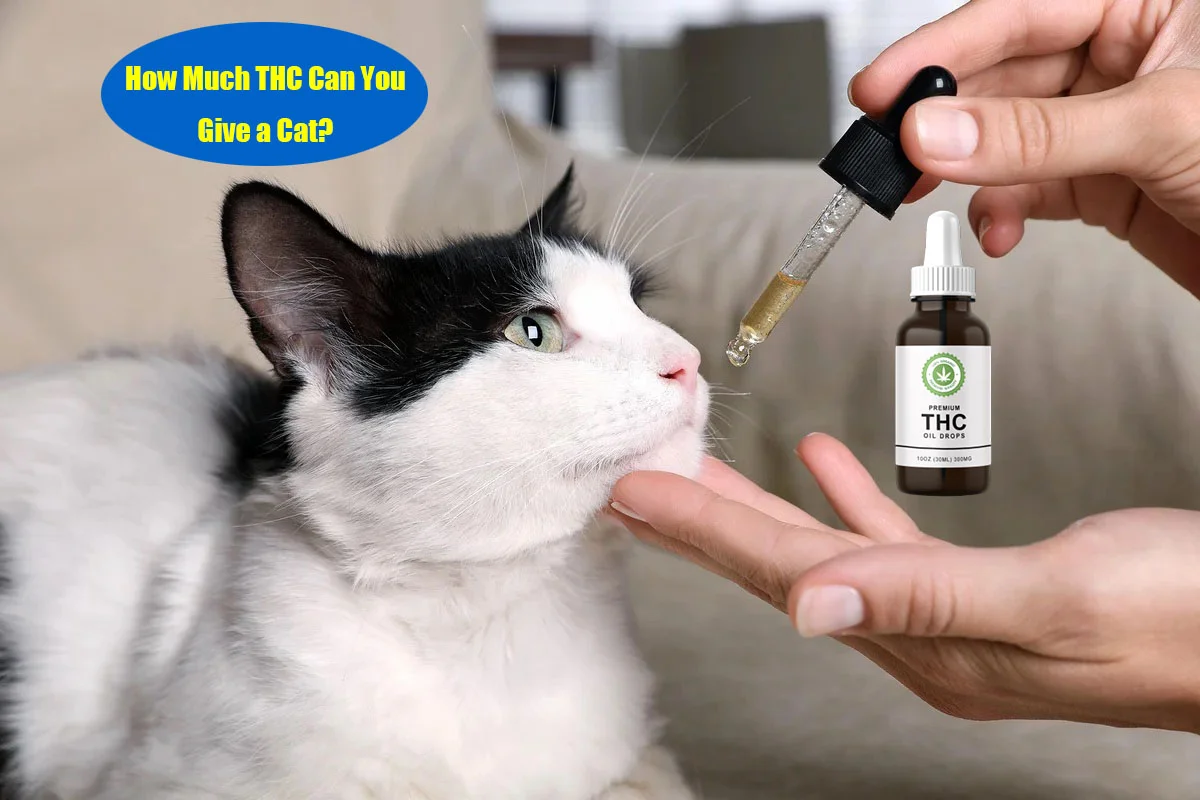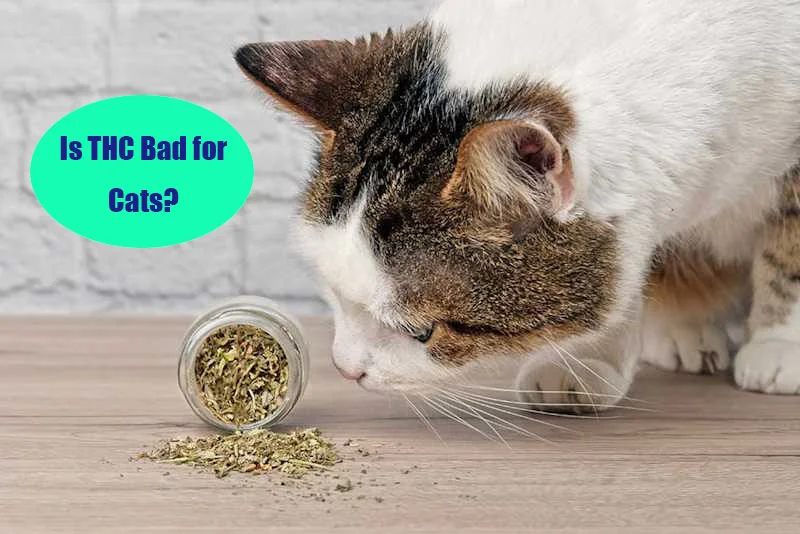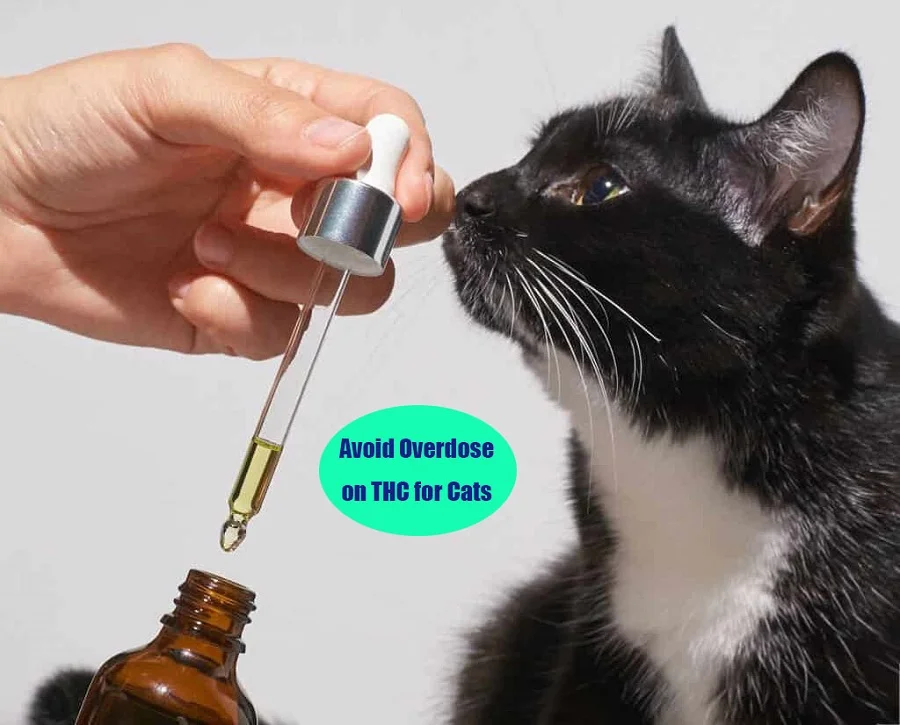How Much THC Can You Give a Cat?

In recent years, cannabis products have gained more attention as potential treatments for our cat’s stiff joints and Chronic pain.
But with so many cannabis products on the market, some owners are wondering the dose of THC they can give their cats.
Whether you are a seasoned cat owner or first-time kitten owner, your cat’s health and safety are a top priority as part of being a responsible pet owner.
Here’s what you need to know about the effects of THC on cats as well as best practices for keeping your furry friend safe, happy, and healthy.
What is THC?

THC, shorthand for tetrahydrocannabinol, is the cannabinoid in marijuana (cannabis) that gives users an intoxicating “high.”
However, THC can also have some other beneficial effects:
THC has agonist actions at CB1 and CB2 receptors, exerting anti‐inflammatory, antineoplastic, analgesic, muscle relaxant, and anti‐spasmodic effects; it also increases appetite and inhibits nausea.
Is THC Bad for Cats?

THC, especially high concentrations, can cause toxicity in cats. Cats have cannabinoid receptors just like humans and usually are far more sensitive to THC.
Cats are much smaller than humans, so they will experience the effects of THC at much smaller doses than people will. Even the smallest ingestion can affect your cat’s health and behavior.
The clinical signs of an intoxication with delta-9-THC in cats differ from those in humans, and include disorders of consciousness, possibly leading to a coma, convulsions, ataxia, depression or agitation, anxiety, vocalization, hypersalivation, diarrhoea and vomiting, bradycardia or tachycardia, hypothermia and mydriasis.
The severity will depend on the amount of THC involved along with factors including the size of your pet. In extreme cases, Overdose THC may lead to coma or life-threatening complications.
How Much THC Can you Give a Cat?

The appropriate dosage of THC for cats can vary depending on factors such as their size, weight, individual response, and the specific condition being treated.
THC products marketed for pets typically have lower concentrations of THC compared to those intended for human use, which helps minimize the risk of adverse reactions.
Individual sensitivities can vary, and it can affect some cats more than others.
It has been reported that THC doses up to 41.5 mg/kg respectively are well tolerated in healthy cats. Generally, the average domestic cat should weigh approximately 8 – 12 pounds (3.6-5.4 kg).
Mild, transient and self‐limiting adverse effects, such as lethargy, vomiting, hypothermia and ataxia, were mainly observed in animals receiving oils that contained THC. but these are gradually pass over the next 24 hours.
However, some cats which took a large dose would experience very bad symptoms and would then require hospitalization, and intensive care with IV fluids, etc.
While there aren’t any official recommendations, a rule of thumb when it comes to giving cats THC is 1-5 mg per day for 10 lbs of weight.
A good general recommendation is to start at the low end, 1 mg, and adjust up from there in 1mg increments until you see the desired results with your cat. It is best not to exceed 5mg per day.
Conclusion
Even though some studies have shown that THC can aid cats with certain health conditions, it is not safe for cats to consume too much amount of THC.
When introducing THC to your cat, it is important to start with a small amount (1mg per day) and gradually increase as needed.
Pay attention to the THC Dose, Avoid giving your cat any products that contains a boosted level of THC.
Always choose high-quality, pet-specific products with clear dosing instructions.
If you suspect that your cat has accidentally ingested THC, Reach out to your veterinarian immediately and inform them about the situation.
